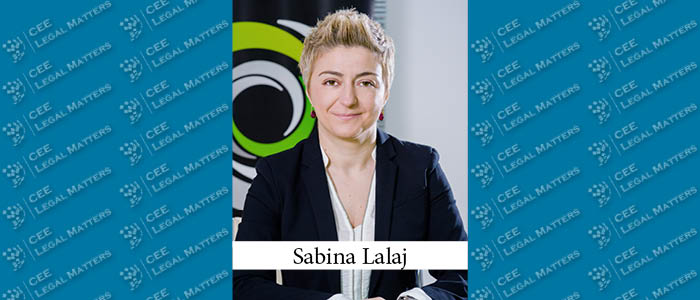According to Sabina Lalaj, the Local Legal Partner of Deloitte Legal in Albania and Kosovo, the current situation in Kosovo revolves around the unfortunate combination of the still-growing Covid-19 pandemic and the political crisis arising from the recent dismissal of Interior Minister Agim Veliu — a member of the Democratic League of Kosovo party, the junior partner leader of the country’s fragile governing coalition — by Prime Minister Albin Kurti, a member of the senior Vetevendosje (“Self-Determination”) party. The combination of the two crises has put the country’s growth on hold, and significantly limited any chance of effective government.
Although elections were held last October, Lalaj reports, the governing coalition was only established at the beginning of this year. Then, on March 18, Kurti dismissed Agim Veliu, citing as the reason Veliu's support for declaring a state of emergency to handle the coronavirus pandemic, which would had given power to the Kosovo Security Council. The Democratic League of Kosovo filed a no-confidence vote motion, apparently in retaliation for Kurti’s move, and on March 25 the Kosovo Assembly voted in favor of the motion, making Kosovo's the first government to be voted out of power due to disagreements over how to handle the coronavirus pandemic. The Kurti cabinet continues as a caretaker government.
"We were hoping they would wait before that vote,” Lalaj says, her disappointment evident, "not only because of the situation with the pandemic, but also because of the fact that this government was showing signs of a new mentality for governing the country, committed to developing the country with honest work and on a meritocratic basis, not based on personal interest.” She sighs. "So this vote by the Parliament was a severe blow to all the optimists.”
According to her, “there are now two scenarios on the table. The minority party of the current coalition is trying to build a new coalition with the opposition parties and eventually form a new government. Meanwhile, Kurti — who at the moment has no real power — is pushing to have new elections as soon as the pandemic ends."
"I really believe that the Kosovo voters who cast their vote for the new generation of politicians and the long-awaited new mentality feel betrayed,” Lalaj says, "because they voted for Mr. Kurti’s government, so the general public feels a little bit used.” According to her, “for these voters — especially for the young generation — a new election would be the best solution, because there would be no need for a forced coalition, and this would be best for growth, liberalization, and for improving the overall situation in the country.” Still, she says, “the chances are 50/50 about which scenario will come to pass."
In the meantime, Lalaj reports, Kurti’s ability to put reform into effect is limited by his diminished status. The most significant recent steps have, of course, involved proposals to support businesses and employees affected by the pandemic. Rules affecting so-called "social distancing” have been put in effect as well, Lalaj reports, ""though even in this they had a dispute with the President, which went up to the Constitutional Court.” According to her, “in Kosovo such decisions must be made by an Act of Parliament, which is difficult now, so when the government took limited action to restrict public interaction, the President objected that it was not constitutional.” She sighs. "I agree he may have been technically right — but sometimes you need to act quickly, and it appears that the dispute is an excuse to create a controversy about the government."
It’s pointed out to her that combination of the pandemic and the political dysfunction in the country is unfortunate. "The timing is the worst,” she agrees, sadly.
"Remember, we had no fully-functional government since last October’s elections, so we were in a sort of limbo,” she points out, noting that, nonetheless, before the pandemic struck things were going fairly well. "Kosovo has had some good developments in the banking sector — that’s an industry that’s been going well. There are a lot of new ideas and projects in the energy sector too, including, in real estate, land for renewable energy projects. The construction and real estate markets are going well — the country is developing, so there is a lot of commercial and residential construction happening. The new international airport in Pristina was a very nice addition to the city and there is significant potential for foreign direct investment.” So, she says, “it’s not that the economy was dying. There was positive movement.” Of course, not everything was rosy. "There was also some fear,” she says, "because with the new government coming into power, people were concerned that there would be new developments with concessions and PPPs, which are traditionally a source of corruption around Europe, so people were skeptical about how the new government would treat and evaluate such relationships, both existing and new.” Ultimately, she says, “Kosovo was not going to be immune to the effects of the regional economy, which had already shown signs of a slowdown, but things were still normal.”
In conclusion, she’s asked if she is optimistic about Kosovo’s potential once the pandemic passes. “If things go in a positive direction,” she says, "and we have a government chosen through new and free elections, yes I’m optimistic. There is a lot of room for growth, in energy, construction, even services. The population is very educated and talented so even in information software and development.” In addition, she points out, “the administration overall is functional —ok, with some small problems — but they are responsive, you can build a relationship of communication with them.” She wraps it up succinctly. “I believe that Kosovo has all the opportunity to have very significant growth going forward depending on which political solutions they find.”
